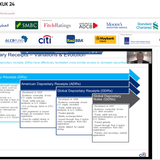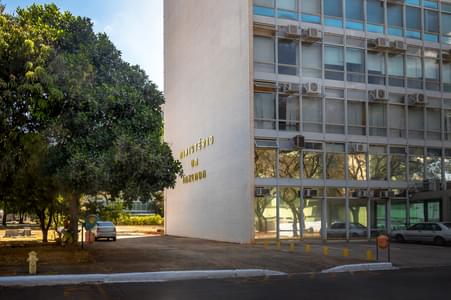Brazil is passing through perhaps its most serious fiscal crisis, which is getting worse as the population ages – by putting pressure on social security spending. This demographic shift will also reduce the country’s potential growth, a situation that requires reforms to spur productivity gains (virtually stagnant since the 1980s). There is no room for a mediocre government in 2019.
Investors have been giving the benefit of the doubt to the current administration and might also do the same for the presidential candidates who emerge next year, because of recognition that pension reform is on the country’s political agenda, and needs to be approved under the next president. It is increasingly clear this is a policy of the State, not of a particular government.
The problem is whether the reform will be ambitious enough. The current pillar of macroeconomic stability is the confidence that the country will manage to stabilize its public debt in proportion to GDP. If this confidence evaporates, the consequences could be significant, to the point of affecting the next president’s ability to govern.
The challenge does not stop there. The demographic bonus (the increase of the difference between the working-age and non-working age population), which has contributed to the country’s growth since the mid-1970s, will be exhausted in the next five years. Without productivity gains, an increase in per capita GDP will be seriously hampered. The agenda to promote productivity is not simple, and it faces resistance, just as tax reform does.
For all this, the presidential candidates will be under careful scrutiny, which might contaminate the economic climate in 2018. In an election that promises to be hotly disputed and highly uncertain, at least until the eve of the first round of voting, a cautious stance by economic agents can naturally be expected. Some decisions on hiring workers and capital expenditures can be postponed, as can the extension of credit by banks, especially against the backdrop of significant legal uncertainty in the country – which severely compromises the ability to recoup assets.
Despite all this, 2018 might hold some positive surprises. The country has been maturing and the government has already implemented important economic policy adjustments. These include both the so-called microeconomic agenda, with measures to eliminate distortions in the economic system and loopholes for fiscal irresponsibility, and structural reforms, such as the spending cap rule, labour law reform and creation of the TLP.
Our history teaches us that every time we follow the textbook, by pursuing responsible and rational policies, the economy reacts positively, sometimes surprisingly so. This happened in 2017, with the impressive decline of inflation and the Central Bank’s interest rate, boosting the confidence of consumers and business executives, and thus improving the labour market, which started to recover before expectations.
This will be a year to reap the rewards of the economic recovery already under way. Businesspeople and consumers will be more optimistic. One reason is that the cuts to the Selic rate affects economic activity with lags, and the effect tends to peak after one year. We estimate that GDP will grow by 3%, factoring into that some electoral noise. Positive surprises cannot be discarded.
It’s important to remember that rapid recovery from the disaster of recent years is not possible. The crisis has affected the financial conditions of companies and individuals, and overcoming these problems will take time. Besides this, the imbalance of the public accounts limits the recovery, not only by the impossibility of using fiscal expansion as a counter-cyclical instrument, but also because the fiscal risk is akin to the Sword of Damocles – threatening long-range investments. How can someone decide to invest in a country without having any inkling of the future economic environment, or the tax burden?
The external environment is a lucky element. The global economy and trade are gaining traction, and there are reasons to believe this movement will have stamina. Inflationary risks in the world are not on the radar, so there is no outlook for major economic tightening next year by the advanced economies, only a modest increase of international interest rates. This picture, allied with the low volatility of the U.S. dollar, the fruit of the more synchronized growth of countries than in the past, will help to keep inflation low in Brazil and attract the interest of some foreign investors.
The more responsible management of economic policy and shortage of funds reinforces the outlook for low inflation, while the high slack capacity helps to contain pressure for wage and price increases. The inflationary risks in 2018 are thus low, making it unlikely the Central Bank will raise the interest rate.
The electoral noise might be more modest than imagined and the economic impact more limited, due to the factors discussed above, and also because of the good chance that the campaign, although aggressive with personal attacks, will be responsible regarding discussion of the economic agenda. There is little to attract populist discourses, at least from the competitive candidates. All candidates will need to ask: How will I be able to govern without having a responsible discourse during the campaign? The campaign of 2014 has left lessons for them here, and thankfully, it appears that society itself is more aware of the need to face the country’s fiscal problems.
A scenario of high electoral uncertainty might reduce the potential for recovery, but not to the point of aborting it. The government’s failure to deliver the pension reform, which would have been its main legacy, might produce a cost.
Important reforms can be approved by Congress, such as the positive credit list mechanism, more flexible rules for court-supervised reorganization and cancellation of conditional real estate sale contracts, measures of the Central Bank’s “BC+ agenda”, reformulation of the Fies [student loan program], and improved regulatory framework for the electricity sector, among others. On the economic agenda, thankfully, next year won’t be one of paralysis.









